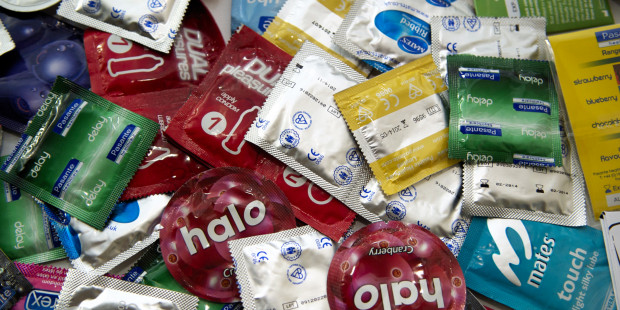Whether you were diagnosed with HIV during a relationship, or you knew you were HIV positive when the relationship started, it’s important for your partner to know their status too.
Remember that if you’re on treatment and have an undetectable viral load, you can't pass on HIV.
Telling your HIV-negative partner about your status
You may find it difficult to tell a partner that you have HIV, but not telling a partner can lead to problems later.
This used to be more of an issue when we understood less about the link between viral load and infectiousness. We now know that if you’re taking HIV medication and have an undetectable viral load, you can't pass on HIV.
If you have a detectable viral load, have unprotected sex and don't tell your partner, they may be angry that they weren’t told sooner. If you don’t tell your partner about your status and they subsequently contract HIV as a result of having unprotected sex with you, you could be prosecuted.
Anal sex
If you have a detectable viral load, the highest risk of passing on HIV is if your partner takes the receptive role in anal sex. If you take the receptive role, the risk is lower but still present.
Vaginal sex
If you have a detectable viral load, vaginal sex without a condom is also high risk but less so than anal sex.
The risk is greater for the receptive partner but the risk for both is real.
Oral sex
If you have a detectable viral load, the risk of passing on HIV from having oral sex performed on you is still very low.
The risk from performing oral sex on an HIV-negative partner is even lower.
If you're worried about oral sex, using a condom or latex barrier is an option, but if your viral load is undetectable then there is no risk.
Other sexual activities
Deep kissing is safe.
Masturbating someone carries no risk unless there are burns, cuts or rashes on the skin of the HIV-negative person that then come into contact with HIV-infected sexual fluids.
Everyday activities
Despite multiple studies in the USA and Europe, there have been no reports of HIV transmission through everyday domestic contact.
Sharing a razor presents a small theoretical risk of transmitting HIV, but sharing razors is never advisable due to the possibility of transmitting bacterial and viral infections including hepatitis B or C.
There is no evidence that sharing kitchen items such as cutlery poses any risk. HIV is not transmitted in saliva.
An HIV positive person with a detectable viral load and an open wound should not be attended to by someone who has an open wound themselves. Wounds can be washed with soap and warm water.
Clean up spilt blood with hot water and bleach (one part bleach, nine parts water), while wearing rubber gloves.
Again, during the everyday activities that are considered ‘risky’, the person with HIV can't pass on the virus if their viral load is undetectable.
PEP and PrEP
In an emergency, such as when sex is not protected, there is a treatment called post-exposure prophylaxis (PEP) that can stop a partner getting HIV.
Pre-exposure prophylaxis (PrEP) is a course of HIV drugs taken by an HIV-negative person to lower the chance of infection. When taken correctly, it significantly reduces the chances of becoming HIV positive.
Monogamous relationships and open relationships
You should talk to your partner and agree whether your relationship will be monogamous (no sex outside the relationship) or open (sex with others allowed).
There are risks in not discussing it and assuming that your partner agrees with you. Some people who think they are in a monogamous relationship find out that their partner has had sex with others.
Both monogamous and open relationships can bring benefits and challenges. For example, some couples in monogamous relationships say they enjoy feeling both physically and emotionally committed to only one person. However, they may feel frustrated if they have a higher or lower sex drive than their partner.
Some couples in open relationships say they enjoy the sense of freedom and variety it can bring, but it can also highlight any feelings of jealousy or insecurity within the relationship.
Mutual trust and honest communication are vital in both monogamous and open relationships.
If you both agree to be monogamous it's important that you discuss what would happen if one of you broke this agreement. If either of you feels you must hide the fact that you’ve had sex outside the relationship, it can seriously threaten the relationship as well as both partners’ sexual health, increasing the risk of sexually transmitted infections (STIs) such as syphilis, herpes, chlamydia, gonorrhoea and hepatitis C.
If you have sex outside the relationship, condoms make it less likely that you’ll pick up other STIs (and give them to your partner). But some can be passed on despite using condoms and through oral sex.
Facing rejection
There’s still fear and lack of understanding about HIV, so many HIV positive people know how it hurts to be rejected by partners or potential partners, especially if they turn you down in an insensitive way.
Rejection happens to the best of us. Try not to take it personally: it’s a reflection of their issues, not of you.
Some people tell potential partners their HIV status as soon as possible so that they don’t invest feelings in someone who might later walk away.
You can look at rejections as a way of sorting out the people who were never going to make you happy anyway. The important thing is not to hide away or give up hope.




